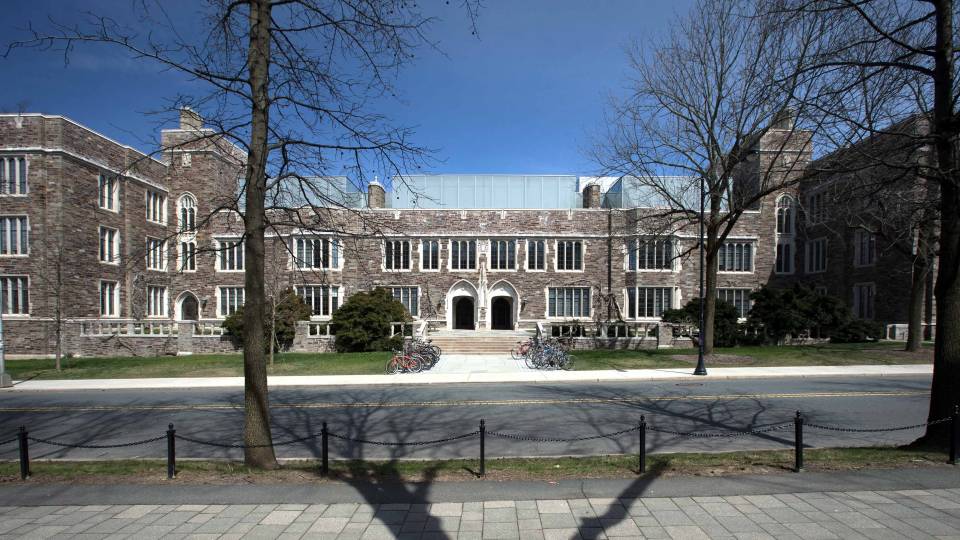Six exceptional early-career scholars from around the world will come to Princeton University in the fall to begin a year of research, writing and collaboration as the first Fung Fellows.
The Fung Global Fellows Program, administered by the Princeton Institute for International and Regional Studies, brings together international faculty members from the social sciences and humanities around a common theme. During the 2013-14 academic year, the theme will be "Languages and Authority" — an examination of how languages interact with political, social, economic and cultural authority.
The fellows — all of whom have been awarded doctorates in the past 10 years — will be expected to conduct research, write and participate in a weekly public seminar series, where they will have the opportunity to present their work to the University community.
The six Fung Fellows selected for 2013-14 are:
- Adam Clulow, a senior lecturer in the School of Philosophical, Historical and International Studies at Monash University in Melbourne, Australia;
- Helder De Schutter, an assistant professor in social and political philosophy at Katholieke Universiteit Leuven in Belgium;
- David Kiwuwa, an associate professor of international studies at the University of Nottingham, Ningbo, China;
- Pritipuspa Mishra, a lecturer in the Department of History at the University of Southampton, U.K.;
- Brigitte Rath, an assistant professor of comparative literature at the Universität Innsbruck, Austria; and
- Ying Ying Tan, an assistant professor in the Division of Linguistics and Multilingual Studies at Nanyang Technological University, Singapore.
"This first cohort of the Fung Global Fellows Program is a milestone not just for this initiative — designed to bring some of the world's most brilliant young academics working on the topic of 'Languages and Authority' here to Princeton — but for the globalization and interdisciplinary focus of our university," said Michael Gordin, director of the Fung Global Fellows Program and a professor of history.
"Among this excellent first group we have individuals ranging from Southeast Asia to Europe to Africa to South Asia, and they work on even more diverse regions to boot," Gordin said. "But they also range across different fields: we have a sociolinguist, a literary scholar, a political philosopher, a scholar of international relations, and two historians, all tackling important questions from a diversity of angles."
The program is funded by a portion of a $10 million gift from Princeton alumnus and trustee William Fung of Hong Kong that is designed to substantially increase the University's engagement with scholars around the world and inspire ideas that transcend borders.
The following is more information on the newly appointed Fung Fellows:
Clulow, originally from South Africa, received a master's degree in Japanese history from Niigata University in Japan in 2002 and a doctorate in East Asian history from Columbia University in 2008. Since completing his first book on the Dutch East India Company's engagement with Tokugawa Japan — "The Shogun and the Company: The Dutch Encounter with Tokugawa Japan" — he has begun work on the project "Possessing Asia: Languages, Power and European Ceremonies of Possession in Early Modern Asia," focusing on the rituals performed by colonizing powers when they arrived in new territories.
De Schutter received a master's degree in 2002 and a doctorate in philosophy in 2006 from Katholieke Universiteit Leuven, Belgium. De Schutter is a political theorist who has published broadly on theories of linguistic justice, drawing most of his examples from European cases such as Belgium and Spain. In his current project titled "Intralinguistic Justice," he attempts to construct a novel theory for language policy.
Kiwuwa received both a master's degree and a doctorate (2006) from the University of Nottingham, U.K., in international studies. His research interests revolve around questions of nationalism, ethnopolitics, conflict and post-conflict reconstruction, and democratic transitions, with a focus on Africa, but also including China and Europe. Currently, Kiwuwa is working on "Post Conflict Reconstruction and the Politics of Language in Rwanda," which explores the fraught case of linguistic politics in post-genocide Rwanda.
Mishra received a master's degree in modern Indian history from the University of Hyderabad, India, in 2002 and a doctorate in 2008 in modern South Asian history from the University of Minnesota. Her special interests lie in the cultural and intellectual history of South Asia. With her present project "Vernacular Homeland: Language and the Making of the Region in Eastern India," Mishra is writing the history of the territory of Orissa from its creation in British India up through the formation of an independent India.
Rath received a master's degree in modern European literature from the University of Sussex, U.K., in 1999, and a doctorate from Ludwig-Maximilians-Universität, Munich, Germany, in 2007. Although her research project ranges both earlier and later, Rath focuses on 18th- and 19th-century texts in French, German and English that claim to be translations from original languages — languages in many cases that the authors did not or could not know. For her project "Presenting an Absent Language — Original Translations," she reads these texts as both original creative productions and as translations.
Tan received a doctorate in linguistics from University of Singapore in 2003. Tan is writing a sociolinguistic and political account of the attempts by the government of Singapore — which recognizes four official languages: Chinese, English, Malay, and Tamil — to enforce Mandarin Chinese and "Good" English as standardized forms of communication, and the effect on a variety of dialects. In her research project "Contesting Language Policies," Tan combines ethnographic work with analyses of how the campaigns worked in practice in order to examine how multilingual environments like Singapore have dealt with problems of linguistic fragmentation over time.



